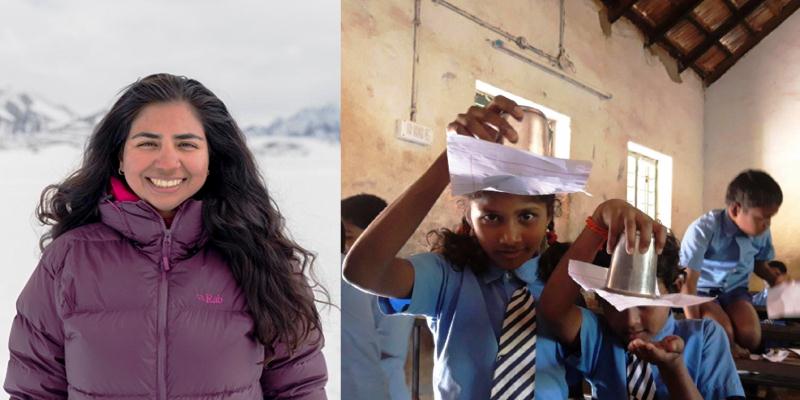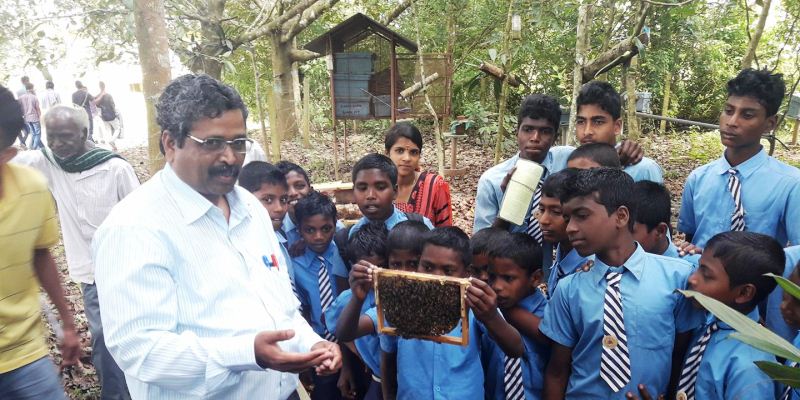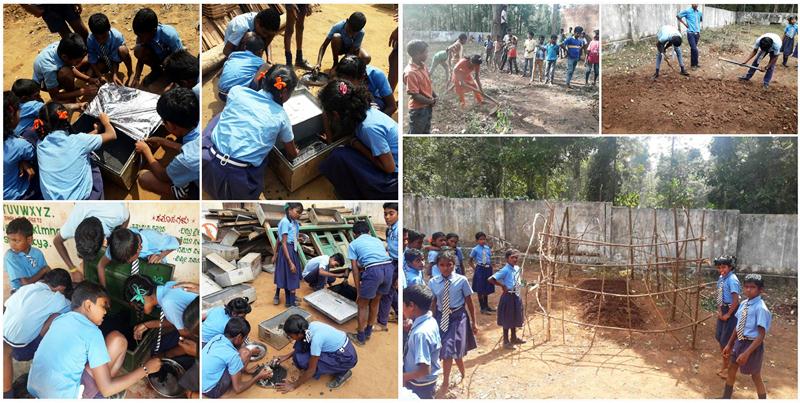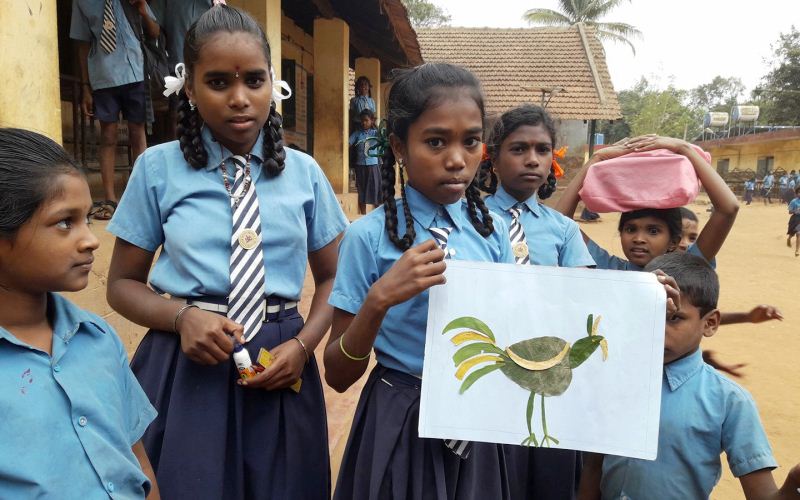E-base, Kodagu, is addressing various local issues such as man-animal conflict prevalent in the area, protecting the Kaveri river, and water conservation.
Nestled in the lush Western Ghats, surrounded by coffee plantations, elephant corridors, and forests alike, Titimati is not far from the Nagarhole Tiger Reserve. A green and resilient building made of clay bricks, local stones, Mangalore tiles and bamboo stands there. It is the E-base at Kodagu — an embodiment of responsible and sustainable living.
Located in the popularly known Coorg district of Karnataka, it is the fifth E-base in the world that started in June 2016. An E-Base serves as a symbolic model for educational, environmental and energy issues throughout the world. The first one was established in Antarctica in 2008.

E-base, Antarctica
Sir Robert Swan, OBE, who established the first E-base in Antarctica, was the first man to have walked, unassisted, to both the North and the South Pole. He has served as the United Nations Environment Programme (UNEP) Goodwill Ambassador.
After successfully removing 1,500 tonnes of waste from the shores of Antarctica, Sir Robert Swan stood at the Bellingshausen Russian Base and envisioned an education base that would allow him to share the beauty of this continent with students and leaders around the world.
Powered entirely by renewable energy, Robert and a small team lived in the E-Base and broadcasted clean technology and energy saving techniques to schools and universities around the world.
The purpose of an E-base is to inspire a global audience to tackle the issue of climate change by showing that if we can achieve the seemingly impossible in Antarctica, we can all take small, achievable steps in our own backyards.
Since Antarctica, E-bases have been established in Pench, Madhya Pradesh; Leh, Ladakh; and Blue Ridge Mountains, USA. All have the common objective to educate and learn about global climate issues, while addressing local sustainability challenge

Taking the E-base to India
Charulata Somal, IAS, CEO Zilla Panchayat of Kodagu, driven by the zeal to make the best things happen in the district, started the E-base in 2016.
It all started in the March of 2016, when Charulata went to Antarctica on an expedition led by Robert Swan for ‘A Leadership on the Edge Programme to the Last Wilderness on Earth,’ not just once but twice the same year. A passionate environmentalist, Charulata, after her return from Antarctica, decided to take forward the concept of E-base in her district to safeguard its flora and fauna through education.
E-base, Kodagu, was established at Titimati Ashram School, a residential government school for tribal children. The E-base runs a paid fellowship programme every year which brings bright, young, motivated individuals to work with the children and build a curriculum on sustainability while imparting life skills to the kids.
With a strength of 250 children and a potential to reach out to over 500 children in the neighbourhood, the E-base gives the fellow a broad canvas to teach and explore.

“We have had one fellow till now and will be receiving our second fellow in June. Our previous fellow, Deepti Bhatt implemented 14 mini projects, core projects, field trips and workshops which included activities like creating and nurturing a vegetable garden at school and making eco-friendly toys. We hope that these efforts will be carried forward by our incoming fellow,” says Aarati Rao, an educator who worked for building a sustainability curriculum for a similar concept learning space, i.e. the E-base in Leh before meeting Charulata Somal on the International Antarctica Expedition 2016.
Practicality and hands-on learning are of prime importance at the E-base and fellows are chosen on the basis of their ability to integrate project-based learning and experiential learning into their teaching style. “The fellow’s role becomes important in utilising the infrastructure and the resources available to provide access and exposure to the children to the outside world while staying rooted in their traditions,” explains Aarati.
Environmental education hub
“E-base, Kodagu, serves as a space for kids to learn about environmental conservation and drive change through activism and ownership. Its objective is to address various local issues such as man-animal conflict prevalent in the area, protecting the Kaveri river, water conservation, and native tree preservation. It also aims to be a space that’ll serve as a window to the world since it is internet-enabled,” says Aarati, who, along with Charulata, realised the vision of starting an E-base in a biodiversity hotspot like Kodagu.

The E-base integrates rainwater harvesting technology, organic farming and clean energy for teaching children sustainable practices from a very young age.
The long-term vision is to make the students capable of countering environmental challenges and inspire them to be the problem solvers of the world. There are 11 ashram schools that are catering to the tribal kids at Kodagu, and the E-base team hopes to make use of the E-base as a learning centre.
Although there are merely five E-bases across the world, the team at Kodagu hopes that there would be an E-base in every country which would virtually connect kids and help them come up with solutions for the big challenges the world faces today.
“That is the big picture which we hope to achieve in the long run,” says a member of the E-base.
source: http://www.yourstory.com / YourStory / Home> Education / by Hema Vaishnavi / August 23rd, 2017

